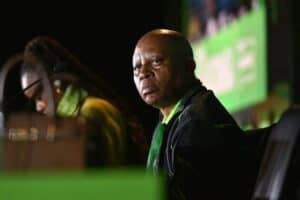Political realignment takes centre stage in South Africa.

With the ANC gradually weakening and ready to hop into bed with the Economic Freedom Fighters (EFF), and any willing partner, South Africa’s future is ripe for political realignment.
Political analyst Susan Booysen said there was a clear movement occurring in the country’s political landscape, and that anything was possible.
“There is more fluidity in our politics now that we had in the last 30 years,” she said.
Political scientist Dirk Kotzé concurred, saying the political realignment, which began during the 2016 local government election, has reached the national level, and was a good sign for democracy.
This as all political parties had begun to reposition themselves for the post-2024 election era in which a national level coalition government was a possibility.
But already two parallel groupings have emerged to pursue opposed each other way forward.
Besides a government initiated process headed by Deputy President Paul Mashatile to gather parliamentary parties to explore a legislative framework for future coalition governments, the ANC and the Democratic Alliance (DA) are on opposite ends to rally their forces against each other.
The ANC stated its desire to align with the EFF – a move that had antagonised the DA to seek an alternative.
The DA stated in unambiguous terms its “moonshot pact” was aimed at removing the ANC from power, and undermining the ANC-EFF coalition plans.
Both sides have realised the urgent need for realignment, although the current process appears to be tapering out into a two-forked dimension.
Indications are that political ideologies had superseded cross-party unity. On the left would be one group comprising mainly the former liberation movement and their various splinter parties led by the ANC.
On the right there is a loose grouping of parties led by the DA, some of which were previously associated with the past dispensation.
The six parties that agreed to participate in the DA-initiated “national convention” in August are mainly leaning towards liberal democracy and free market economy, specifically espoused by the DA and Herman Mashaba’s ActionSA.
The Freedom Front Plus and Inkatha Freedom Party (IFP) might have specific interests pertaining to Afrikaner and Zulu regionalism, respectively, in the group.
But any DA-IFP co-operation poses a serious threat to ANC power in Gauteng and KwaZulu-Natal.
Other parties likely to join the ANC camp are known suspects – the Pan Africanist Congress, Al Jama-ah and the African Independent Congress. But uncertainty surrounded the future alliances by the United Democratic Movement, the African Transformation Movement and Congress of the People, which is again embroiled in leadership squabbles.
Observers see the current political integration – or at least talks about it – as indicative of country’s maturing democracy.
They cite the fact that in well-established and mature democracies lesser parties contest election.
Political analysts agree on one thing that the ANC would not lose power in 2024 but its majority would be drastically reduced.
They predicted it to drop to about 45%. Booysen said if the ANC aligned with EFF, it would retain power.
Support Local Journalism
Add The Citizen as a Preferred Source on Google and follow us on Google News to see more of our trusted reporting in Google News and Top Stories.






